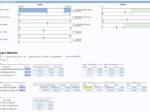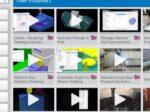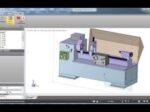Internet of Things Top Trends
Old products will be re-invented and whole new ventures will emerge overnight to focus on the analysis part, and define service on top of it. Software AG has released its picks for the top trends for the Internet of Things (IoT). The overarching theme highlights the need for better regulation and security for widespread adoption. The Internet of Things is a revolution. There will be serious threats to those who are not prepared and profitable opportunities for those who are. Issues such as security and governance will need to be addressed as IoT begins to impact more and more of our daily lives. Software AG’s Top Internet of Things (IoT) Trends: 1. Don’t Gamble with IoT: Untrustworthy Things will be treated like gamblers in a casino – under close surveillance and approved until they misbehave. Traditional methods of on-boarding Things using explicit authorisation will be insufficient as IoT proliferates. 2. Intelligence on Things gets up close and personal: As intelligence on the Internet of Things becomes critical to decision-making, it will become necessary for analytics to reside close to the Things being analysed. Analytics will evolve both in the cloud and on the “outer edge”— either on the Thing itself or on a gateway nearby. 3. Say hello to your virtual assistant: IoT will enable consumers to adopt a “virtual assistant,” which will act in a semi-autonomous manner in the home — monitoring sensor-enabled Things to replenish light bulbs, order prescription medicines or buy groceries online. But consumers will demand assurances of security and privacy before embracing the trend. 4. Pay-as-you-go Things: The Internet of Things will accelerate the pay-as-you-go model for products. All products will be sold with something “smart” embedded within them. For example, a washing machine could be offered cheaply, or even for free, with the consumer […]











